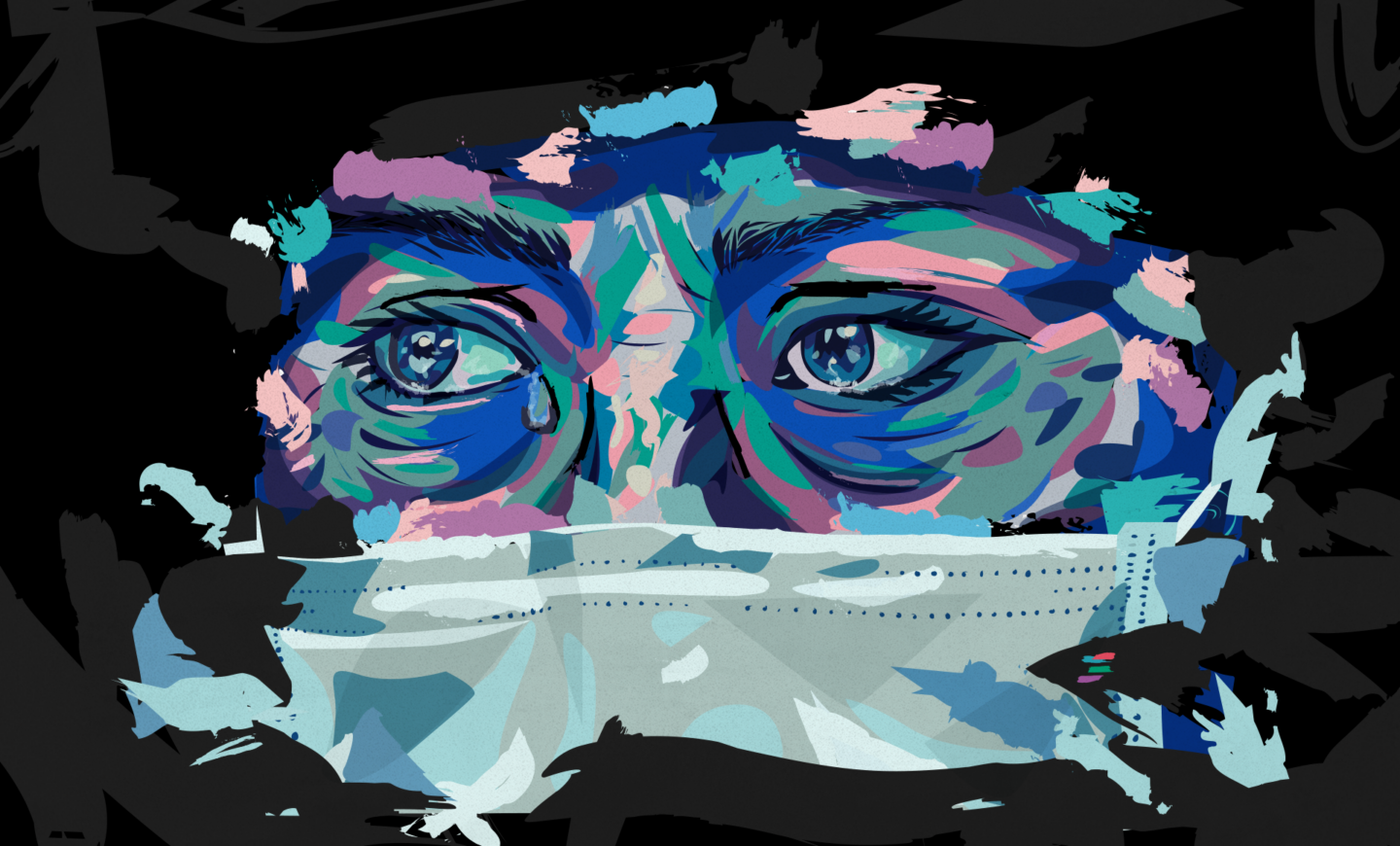“So it wasn’t really until I was able to start working at Boston Children’s, that I left my previous job that I realized I still had these feelings of waiting for the other shoe to drop. I was waiting for my shifts to get so bad, as I had experienced previously, or waiting for those moments of, okay, I know it could be bad, when’s it going to happen? So I was always kind of hypervigilant and after weeks, which turned into, you know, a month and two months of, okay, this shift was good. Oh, my shift was great. Oh, okay. Nothing bad happened. I recognized that something deeper was going on.”
Michelle Schuster, pediatric oncology nurse at Boston Children’s Hospital, is describing a phenomenon experienced by many nurses. But she’s not talking about your basic burnout. She’s talking about post-traumatic stress disorder (PTSD). This is an especially important episode as the COVID-19 pandemic continues and nurses on the frontlines across the country face a true mental health crisis. We must acknowledge that PTSD is real and start getting our colleagues who are experiencing it the help that they need.
Like many nurses dealing with COVID-related trauma today, Michelle didn’t realize what was happening to her at the time. It was not until she met with a mental health professional many months later that she was finally able to label and understand her reaction to trauma as PTSD. “Sitting in that therapy session … it was a light bulb. I had never considered that nurses could have post-traumatic stress disorder if they weren’t deployed or weren’t related to the military.”
That’s a common misconception — that PTSD is unique to the military. It actually used to be known as “shell shock” or “combat fatigue.” But trauma can happen to anyone, and it happens in all kinds of settings, not just war zones. We learned from Michelle and her mentor Tricia that it’s a serious occupational hazard for nurses.
A quick PTSD primer from the episode — is PTSD the same as burnout? No, but they can present similarly and are both really serious. While burnout syndrome is the experience of emotional exhaustion due to chronic overwork, PTSD is a stress response to a specific traumatic event or series of events. Here’s how Michelle describes it:
“Burnout is something that is a little bit more commonly talked about in the profession, and it’s something that there is more literature out there about. But PTSD is really, it goes a little bit deeper and it affects the nurse, not only in the shift, but after the shift, and it can have more lasting effects.”
It’s believed that nurses experience PTSD at nearly twice the rate of the general population. Specific figures are hard to come by because it’s often measured inconsistently, but some studies estimate nearly 30 percent of nurses experience PTSD. When you think about nearly a third of every unit struggling with symptoms of PTSD — Michelle described hypervigilance, negative thoughts and avoidant behavior — and then add COVID-19, you realize just how big of an issue this is.
But before we can even start to get nurses the help that they need — there’s a big first step.
We have to acknowledge that it’s real
Here’s what Michelle told us about her experience, which unfortunately is more the rule than the exception:
“I told other nurses, and their reaction was, ‘Oh, well, you know — you gotta toughen up.’”
Candidly, SHIFT-talkers — that kind of attitude just won’t cut it. Making nurse mental health less taboo is so important, and we all need to be aware of our needs and advocate for ourselves. Michelle and Tricia discuss some programs that have worked in their hospital, but they also acknowledge that not all nurses have access to the resources that they do at Boston Children’s. In those cases, there is still something we can do — which is to support each other. We loved the way Tricia put it:
“Can we kind of take them by the hand? Can each one of us take a role and like, say, okay, let me sit down with you right now. And like, OK, we’re not, there’s nothing available at the hospital to help you, but so let’s look, let’s look in your community. Let’s, you know, let’s contact this person. Let’s see if they can point us in the right direction. Sometimes that person just needs somebody to be like, you know what? This is real, what you’re experiencing right now. It’s OK. And it’s okay to admit that you need some help. So I’m going to sit with you and we’re going to find you, you know, someone to talk to and they can best advise you of like, you know, what you need and where to go.”
As we enter subsequent waves of the COVID-19 pandemic — or in some cases, extensions of the first wave — nurses who are already traumatized are being asked to push the last several months aside and bear witness to isolation, death, and an unprecedented virus yet again.
Nurses will always get the job done, but our question is this: Who’s going to support us when the shift ends? Yes, we can be there to comfort each other, as Tricia describes, but we also need and deserve more formal support and programming to actually treat pandemic PTSD. This episode is just the beginning of a much larger discussion that we’ll be facilitating through SHIFT — we hope you’ll stay with us as it continues.
About our guests
Michelle Schuster and her mentor Tricia Dwyer are passionate about supporting the emotional and physical well-being of nurses. After experiencing their own bouts of burnout and PTSD, they became dedicated to researching and raising awareness of these conditions. Their co-authored “Post‐Traumatic Stress Disorder in Nurses” study published this spring right as COVID hit–casting them in the spotlight as the media began to cover the pandemic’s impact on frontline health care workers.
Michelle began her career as a pediatric oncology nurse about five years ago and currently works on the inpatient hematology/oncology unit at Boston Children’s Hospital. She is an active member of the Association of Pediatric Hematology Oncology Nurses and serves as a High Reliability instructor for hospital new hires, as well as a preceptor to new graduate nurses and new hire nurses on her unit. She also works as a part-time adjunct faculty member at several Boston-area colleges.
Tricia worked as a clinical nurse for more than 30 years, providing nursing care to surgical patients and families across all phases of the perioperative experience. She now serves as a faculty member in Boston Children’s Hospital Nursing Science Fellowship and as an evidence-based practice mentor. In addition, she facilitates satellite simulation courses and serves as the co-chair of the hospital’s Nursing Scientific Review Subcommittee. Her program of research explores the social and psychological factors that influence health care organizations, employee outcomes and patient care.


